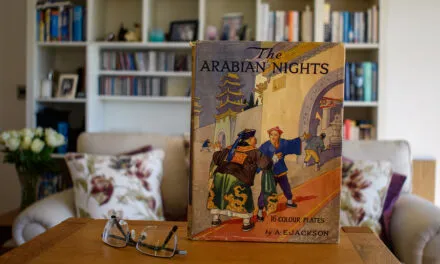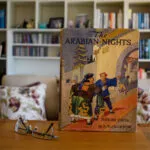Why You Should Give A Damn About The 2010 Census

Ray Hanania: I think the most important issue involving the U.S. census is the failure of the census to recognize Arab-Americans on the form as they do 29 other racial and ethnic groups that range from 3 different categories of African Americans, numerous categories of Hispanics, Asians and Native Americans to Chicanos, Tongans and more. Simply asking Arab Americans to not protest the census and demand that we be included by the simple insertion of the four letters, A-R-A-B, alongside groups is wrong. Without that designation printed in the census forms, Arabs are technically not included in the big goals that the census asserts are benefits, such as acquiring grant funding. Further, asking Arab-Americans, as a remedy, to simply write in their identity on a blank line in the form discourages full Arab-American participation. Even if we do fill out the forms, the absence of a box to fill in will result in most Arab-Americans’ not writing in their identity and therefore create an inaccurate count of Arab-Americans.
Not being identified on the census form is also symptomatic of problems we face across the board; Arab-Americans are excluded from wider related recognition’s, such as not being identified on reports of traffic stops to determine if, for example, Arab-Americans are being targeted. Arab-Americans are categorized as white, yet we are singled out, profiled, discriminated against and excluded specifically because we are Arab. These issues are all related. Standing up and protesting and refusing to participate is a form of civil protest that can make a significant point. It could force the U.S. government to finally officially recognize Arab-Americans as a race and ethnic identity purely for monitoring discrimination practices.
This is not a new issue. It has been coming up for the past three decades since the 1980 census. We have consistently participated, but we have not received benefits because we are simply “not seen” by the government. We are included in the bigger society but not seen as separate from that majority community, and therefore grants, funding and support, protections and defense against discrimination programs simply look beyond us. We receive far less than we would if we were identified.
The Arab community is not the first to face this problem. Latinos, Asians and others have gone through this process and were able add their identities by encouraging their communities to fill out the form and by organizing their efforts and demand their Congressional representatives to act.
RAY: I am not thrilled that many Arab-Americans organizations, with funding from the U.S. Census, are choosing to continue to do what they have done for the past three decades since 1980, accept the status quo and not use their influence to force a change to include ARAB on the census forms.
The very fact that individuals argue that Arab-Americans have lost funding and support over the years by not fully filling out the forms shows that simply writing in your ethnicity strategy doesn’t work.
Of course Arab-Americans should participate in all levels of public service and societal affairs from registering to vote and voting, to engaging the Federal government. Taking on the more courageous challenge to fight for our rights as Arab-Americans is what we should seek.
The fact that there are 29 other ethnic and racial identities on the U.S. Census form shows that achieving that status is possible. It also shows that among the groups included, the powerful like African-Americans and Hispanics who have long histories of civil empowerment, and the less powerful like Tongans are both listed. They had leaders who actually led and who did not simply roll over and accept the status quo. They had leaders who clearly stood up and did what was necessary.
One cannot grasp the extent of this failure on the part of our Arab-American leaders to actually lead until you see the list of 29 ethnic and racial groups now identified on the census form. These groups are described in exactly 47 words describing ethnicity and race and 313 characters. And they can’t add one more word or 4 more characters to the list?
It is wrong, and accepting that without organizing a struggle to right that wrong is immoral.
RASHAD: Arab organizations and advocacy groups around the country are on the right track. They are partnering with the census, encouraging their communities to fill out their forms, forming Arab Complete Count committees and engaging Congress in that regard. Increased participation is needed, not a boycott.
RAY: Those in the Arab-American community who, like Mr. al-Dabbagh, are employed by the Census Bureau are misguided and obligated to defend it. The wrong response from our leadership is to say that after three decades of doing just what they have argued (filling out the census forms and writing in our names) is that we should keep doing what we have been doing.
Protesting and boycotting the census this fourth time (1980, 1990, 2000 and 2010) is, in fact, the proper response to pressure the government by non-involvement. The benefits that census advocates claim we will get are non-existent until we are fully recognized by being included on the form.
Census workers assert that non-participation would be disastrous. But their answer, writing in our name by hand on the “other” line in a manner that fails to fully reflect our community is in fact the real disaster. We become statistics with no identity who are used to bolster up the needs of the greater community without benefiting directly for our own community.
The argument that there is “no room” on the census form and that others have fought and it is a long and hard process is not the response our community needs to hear from individuals who claim to be leaders. In fact, if we need to begin the fight, the fight has to start now, and our efforts could result in forcing Congress to include four simple letters on an extremely long form with a lot of space (or real estate, as the census advocates call it).
Not being included in the census as a formal recognized entity has dire consequences that Arab-Americans face every day. The census is the front line on this fight by Arab-Americans for equality in America, and fighting the census is exactly where this fight should begin. Arab-Americans must be counted the right way, not half way.
RAY: I disagree with them. Boycotting in fact is the move to take a stand rather than to continue to do what we are asked to do. We did it in 1980, 1990 and 2000. Now we are being told to do it again in 2010. So we can be counted in 2020? What has changed from the past to lead anyone to think that the U.S. Government will change and finally recognize the rights of Arabs in America?
I do believe that when individuals are paid for advocacy, they are embracing a directive. If we expect to make a change, we must first begin with ourselves and take a stand and fight for it. We have been told for the past three decades that if we do not write Arab in on the form, we will not be counted. The fact is that the very argument being used to push us to write in Arab is that we have not been counted. So, it has not worked. It does not work. Doing so regulates us to a second or third class status. They have been asking us to do this for three decades, and in every census cycle they acknowledge that we have not been fully counted. Clearly, it is not working.
I would rather make a stand by demanding equal rights than roll over and allow ourselves to continue to be disrespected and undercounted by a process that does not work.
RASHAD: My question is how will that change the status quo? Boycotting the census would have a disastrous effect on the Arab community and will further reduce the chances of adding the Arab identity in the future. Demanding a boycott of the census is like demanding a change in U.S. foreign policy in the Middle East, or any other cause, under the condition of opting out of voting, lobbying and contributing to political candidates or causes. It will only harm the Community, not help it. If Mr. Hanania has a workable plan that will lead to the addition of an Arab box, I hope he can share it.
If you follow the federal guidelines on racial and ethnic measurement of the U.S. Office of Management and Budget (OMB), persons from the Middle East and North Africa, like those of European descent, are classified as white. However, an Arab and/or Middle Eastern category is high on the list of possible additions and will only be added by an increase of the response rate and an act of Congress.
RAY: The Government has absolutely no motivation to add us to the census if in fact they are satisfied that the current system of encouraging individuals to write in “Arab” on the form is working. It is not working. In fact, asking Arabs to do so only reinforces that point now as we enter the fourth decade of addressing this failed issue. It’s time we give the system a push. It’s time we stand up and speak out. It is not time to be meek, quiet and obedient.
Arabs are classified as white but are separated and discriminated against in almost every aspect of life as a separate minority group—at airport security, in job hiring and firing and in terms of acts of bigotry by fellow citizens.
We are excluded from being counted when it counts, and counted only when in negative circumstances such as fear and threats of terrorism. It’s time that things change, and I don’t think waiting another 10 years is the right strategy.
Ray Hanania is an award winning political columnist who has covered both Midwest American and Middle East politics for more than three decades, including 10 years managing election campaigns for more than 50 candidates for local, statewide and Congressional offices. The winner of three Society of Professional Journalism Lisagor Awards, Hanania was named Best Ethnic American Columnist by the New America Media for 2007 and 2008. He writes for dozens of newspapers in the Middle East and the United States. He hosts a morning Chicago talk radio program Monday thru Friday in Chicago covering middle American and Middle East issues. Hanania’s family originates from Jerusalem and Bethlehem, Palestine.
Rashad al-Dabbagh is a Partnership Specialist with U.S. Census Bureau, reaching out to the Arab-American community in Southern California. Since moving to California in 1999, al-Dabbagh has been active with Arab-American community. He is the current President of the Network of Arab-American Professionals of Orange County (NAAP-OC). Previously, he was the Associate Director of ACCESS California Services, an Anaheim-based non-profit social service organization that serves the Arab and Muslim communities. He served a one-year term as Regional Director for the California Young Democrats in 2008, founded the Middle Eastern Student Society at Cal State Fullerton in 2004 and volunteered for many organizations including the Arab-American Institute and the Muslim Public Affairs Council. He is a Saudi-born American of Palestinian and Armenian descent.





























